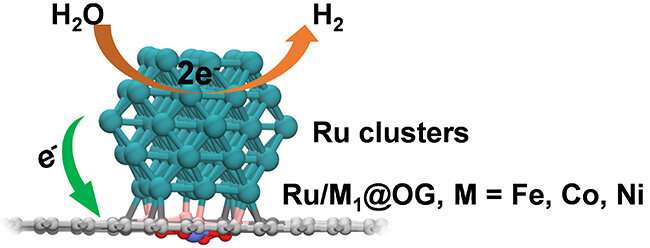Novel nanoreactor boosts performance of electrochemical hydrogen evolution reaction
Precisely regulating the electronic structures of metal active species is highly desirable for electrocatalysis. Carbon-based substrates with inert surface provide weak metal-support interaction and thus are unable to modulate their electronic structures effectively.
The researchers dispersed single Co atoms on carbon substrate to enhance the interaction between substrate and the ruthenium (Ru) nanoreactor, which enabled remote regulation of the electronic states of Ru nanoparticles, and thereby tuning their electrocatalytic activity.
They took hydrogen evolution reaction (HER) as a model reaction, the cobalt single-atom doped carbon-supported Ru nanoreactor showed ultrahigh catalytic activity and stability.
Theoretical calculations showed that decoration of oxygen-containing graphene by single metal atoms induced electron redistribution on the carbon surface. The carbon atoms surrounding the single atoms were electron deficient, which enhanced the electron transfer from Ru nanoparticles to the carbon substrate, and thereby optimized the binding capability of Ru nanoreactor and its HER performance.
International Conference on Advanced Nanomaterials and Nanotechnology
1st Edition of NANO | 15-16 December 2022 | Dubai, United Arab Emirates (Hybrid)

Comments
Post a Comment